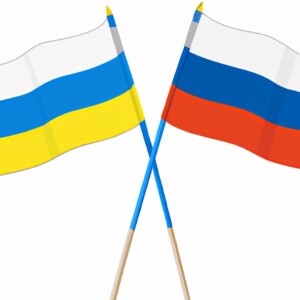
The issue of whether Russia is locked in a war with Ukraine is a captivating and contentious subject that keeps experts and policymakers on their toes. This conflict between the two neighboring nations erupted back in 2014, when Russia seized Crimea, a territory that previously belonged to Ukraine. Since then, tensions have soared, thrusting eastern Ukraine, particularly Donetsk and Luhansk, into a full-blown armed confrontation. But the plot thickens with the involvement of pro-Russian separatist groups in these regions, allegedly backed by the Russian government. Although Russia vehemently denies any direct role, claiming it’s an internal Ukrainian affair, the mounting evidence suggests otherwise.
Countless reports and investigations have shed light on the presence of Russian troops, military equipment, and support for the separatist forces. This relentless conflict has claimed numerous lives, forced people to flee their homes, and dealt a crippling blow to the economy in the affected areas. Understandably, the international community has expressed outrage and responded with economic sanctions. Yet, despite these measures, the conflict remains unresolved, with sporadic outbursts of violence and ongoing negotiations for a peaceful resolution.
Now, whether one chooses to label this situation as an outright war depends on how they define the term “war” itself. While it may not resemble a conventional, large-scale war between these nations, the conflict in Ukraine undeniably exhibits the hallmarks of an armed confrontation. There are military operations, casualties, and disputes over territorial control, all of which characterize a state of conflict. Ultimately, the question of whether Russia and Ukraine are engaged in a war is subjective. However, it’s an undeniable fact that this ongoing crisis is a grave issue demanding urgent attention and concerted efforts for a peaceful resolution.
